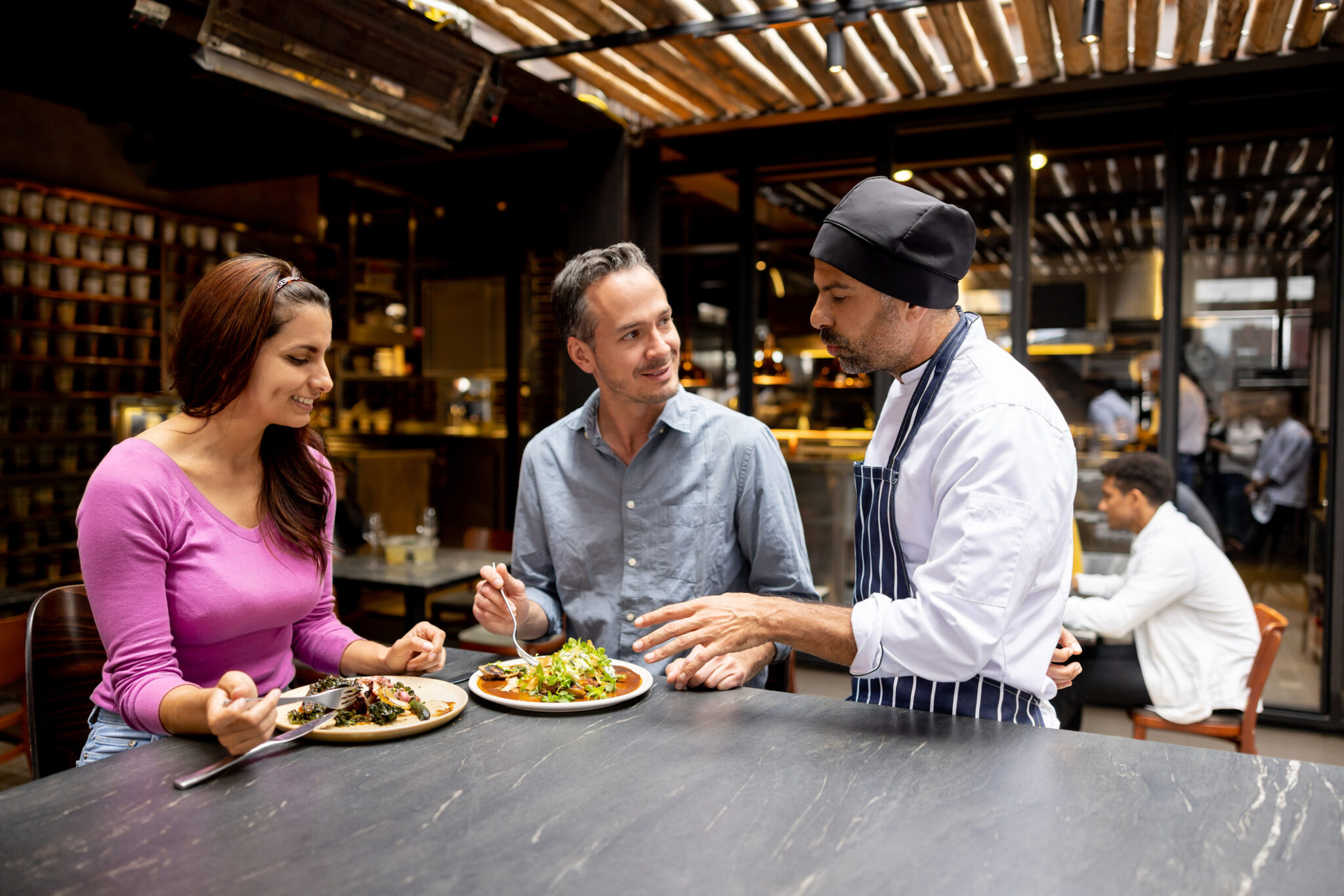You are not alone if the epidemic caused changes in your eating habits. According to a 2021 research by the American Society for Nutrition, as the pandemic spread, people’s eating habits, shopping habits, and attitudes around food changed.
Even though the epidemic is long behind us, a few of the alterations are still having an impact on how consumers like to engage with food.
These international culinary trends are undoubtedly expected to have an impact on the eating scene in the Middle East in 2023 since food is regarded as a unifying factor and a universal experience that unites people from all walks of life.
In the Middle East, there are reportedly 300,000 restaurants and food service businesses, 13,000 of which are located in Dubai.
I got into contact with Alina Abramovich, Director of Marketing at the Kempinski Mall of the Emirates, who offered perceptive perspectives on how businesses are coping with and succeeding among these developments.
In the heart of Dubai, there is a luxurious hotel called Kempinski Mall of the Emirates. In addition to providing guests with immediate access to one of Dubai’s premier retail centers, the hotel also features four different gastronomic ideas.
More demand for plant-based menu
Even before the epidemic, the acceptance of plant-based diets was rising, and it continues to do so now.
One of the main reasons individuals switch to a vegan diet is animal welfare, environmental activism, and general health benefits.
Many of the Middle East’s best restaurateurs predicted that plant-based foods will become more popular when Fast Company polled them about the upcoming food trends for mid-2022 and beyond. One of the highlighted those surveyed, Jad Aboujaoude, managing partner for Salmon Guru and Elements Hospitality, attributed the rise in popularity of plant-based eating to guests’ increased health consciousness.
According to sustainability organization LIVEKINDLY, Triton Market Research anticipates at least 12 new vegan eateries to launch in the Middle East, making it the region’s new hotspot for vegan cuisine. Overall the vegan meat market in the Middle East is projected to have a compound annual growth rate (CAGR) of 9.84 percent between 2019 and 2027.
Abramovich said that the Kempinski Mall of the Emirates’ Middle Eastern-inspired restaurant serves plant-based versions of foods that have been part of the Levantine cuisine for countless years.Salero, a Spanish restaurant, has been serving a variety of plant-based dishes using substitutes like mushrooms, potatoes, eggs, and beans.

Sustainable consumption and dining
The need for sustainability is increasing across all industries as people become more aware of how our own manufacturing and consumption habits impact the environment and the amount of resources we have available.
Customers in the Middle East are becoming more conscientious and asking for healthier food options.
F&B and catering publications In 2022, Caterer Middle East surveyed 7,000 food consumers and discovered the following:
Customers are prepared to pay more for takeout from restaurants that have obvious sustainability initiatives, according to 43% of respondents. Another 47% of respondents indicated they might even think about altering what they eat from the menu to be more environmentally friendly.
Transparency and communication are also essential. There are many methods to practice sustainability, so businesses need to be outspoken about it and be transparent about it with their clients and customers.
According to the poll, 56% of participants would prefer restaurants to disclose more information about their efforts to increase the sustainability of delivery and takeout.
Additionally, 56% say that restaurants could be more open about their sustainability initiatives, and 66% think that doing so would help businesses reduce food waste.
Nearly 80% of the hotel’s waste is recycled under the Kempinski Mall of the Emirates’ “binless” system. According to Abramovich, the hotel has put in place a system to lower food production and turn food waste into manure.

